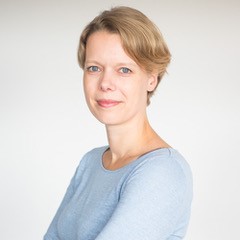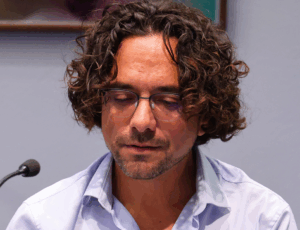
It's great! but research is never done in isolation
Marieke Hendriksen on recieving the KNAW Early Career Award
Current Fellow Marieke Hendriksen was presented the KNAW Early Career Award, a newly established award which aims to support early career researchers who have shown innovation and originality in their research.
It feels a bit like winning a lottery prize. A 175 people were nominated by KNAW members, and only twelve awards were given to individuals. Specially in the humanities, research projects need collaborators and supporters. I worked with researchers from other fields and with GLAM institutions (galleries, libraries, archives and museums) and artists to include new approaches such as digital humanities methods and reconstructions when looking at the material culture of eighteenth-century medicine and chemistry.
What are you working on now?
I’m very happy that my current employer (the KNAW Humanities Cluster’s NL-Lab) and NIAS are offering me the opportunity to work in a team.
Our NIAS-Descartes Theme Group is researching the History of Knowledge, and by that I mean how our understanding of knowledge was shaped historically. Until recently the focus in the history of knowledge was mostly on scholarly or scientific texts. Over the past decades, scholars have started to re-examine what knowledge meant in the past, and that it was visible in more ways than just in scholarly texts. Knowledge was produced, contained and passed on in many different ways, not just by men in universities and through printed academic works, but also by skilled craftspeople and amateurs, men and women writing manuals, recipe books, letters and diaries, through images and objects. This list isn’t exhaustive but including such sources and people can change our perspective in understandings of knowledge.”
Do you mean, you’re looking at alternative histories?
The dichotomy between history and alternative history isn’t necessarily productive; history should be inclusive. We need big history, global history and longue durée approaches, as well as microhistories and case studies. But whichever approach you choose, I think you can and should include voices and sources that have long been ignored. By looking at how understandings of knowledge changed in various social, professional, and geographical spheres between 1500 and 1800, we want to offer a kaleidoscopic view, rather than a complete survey, of the possibilities new approaches offer for the future of the history of knowledge.



